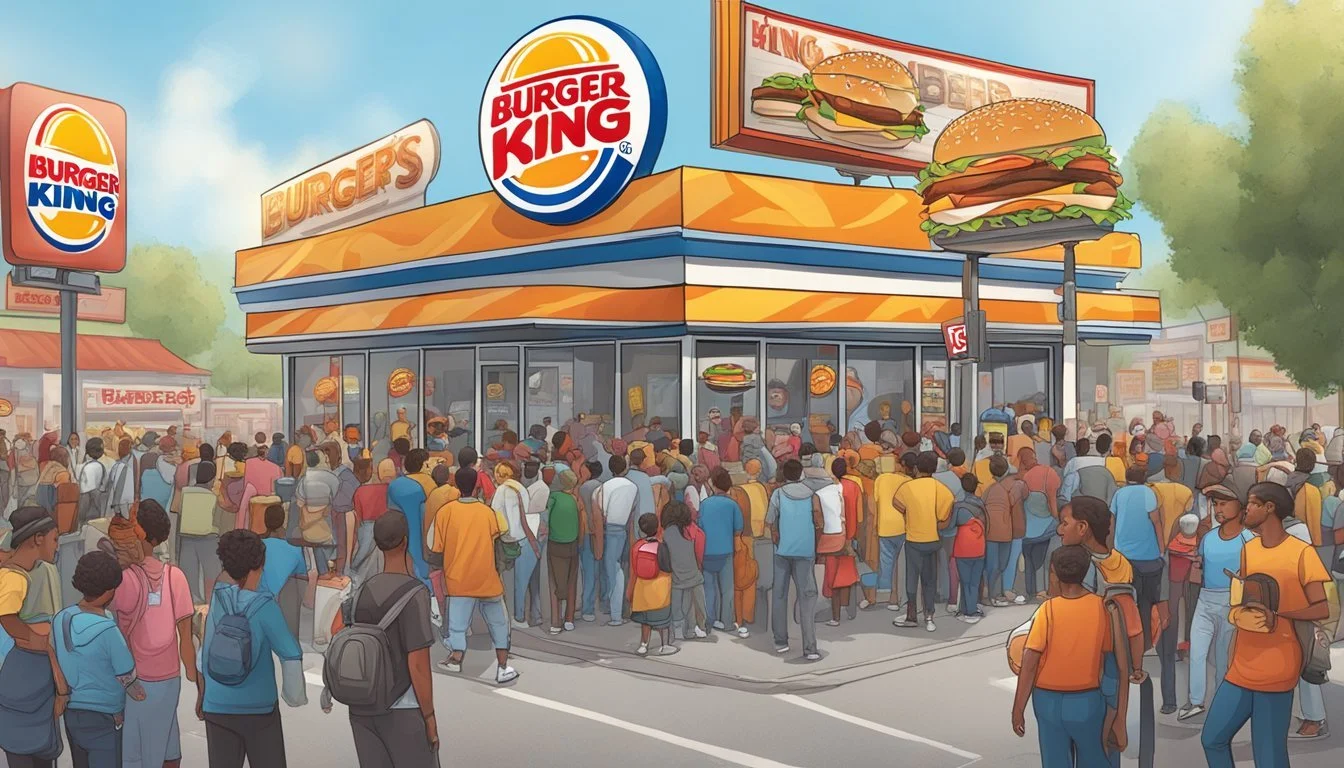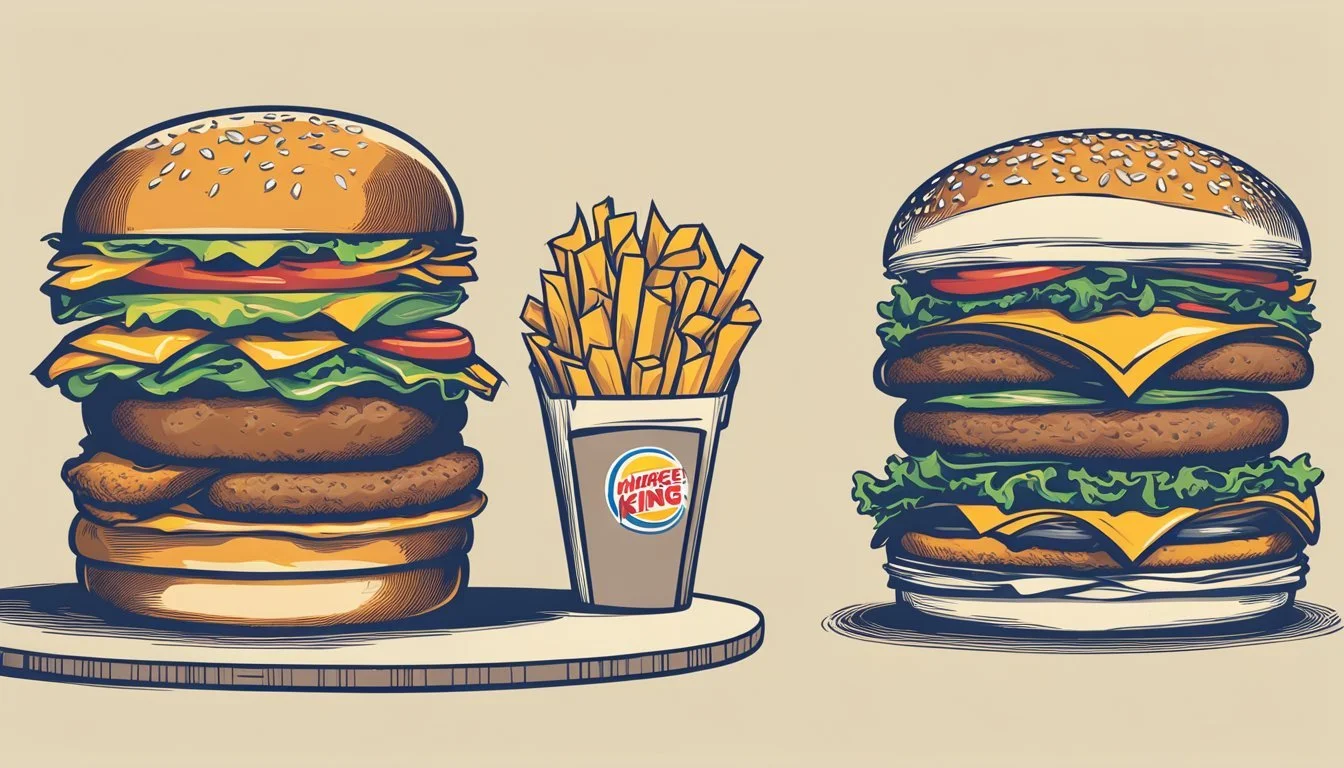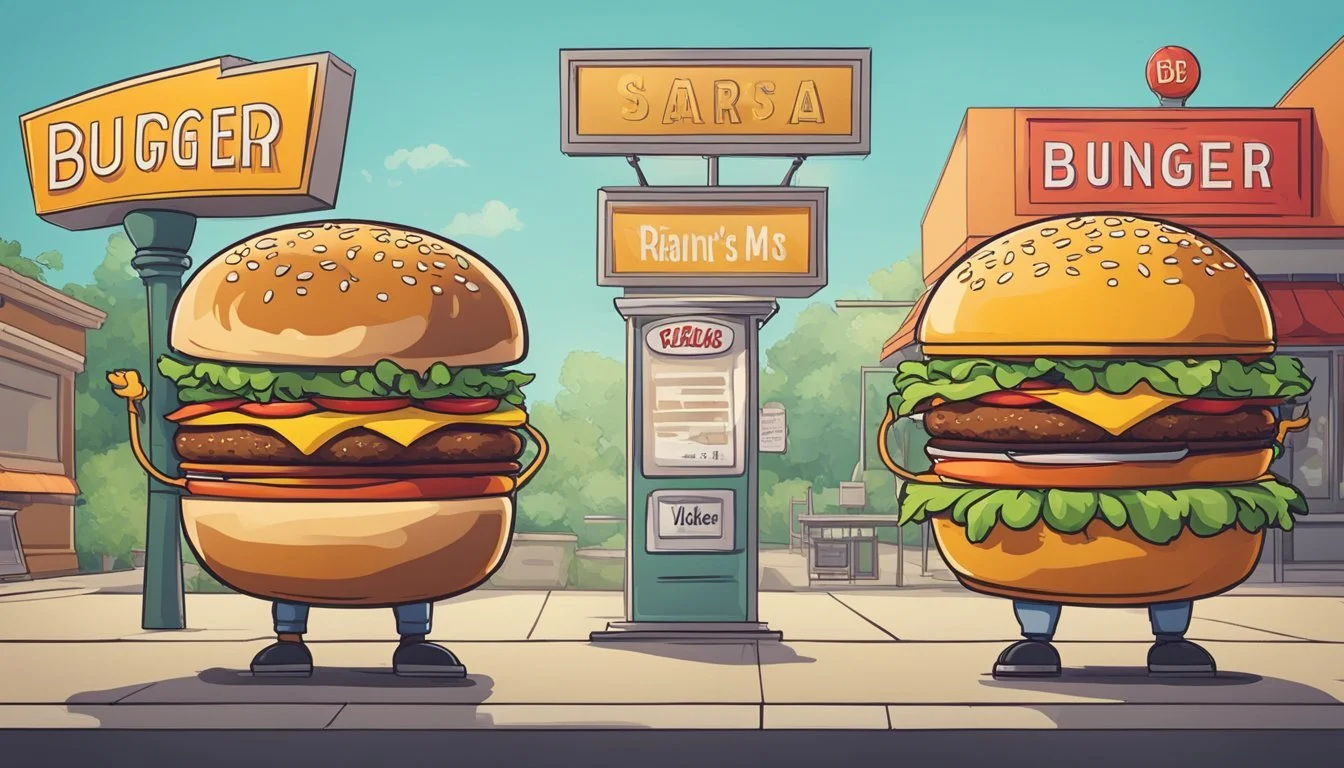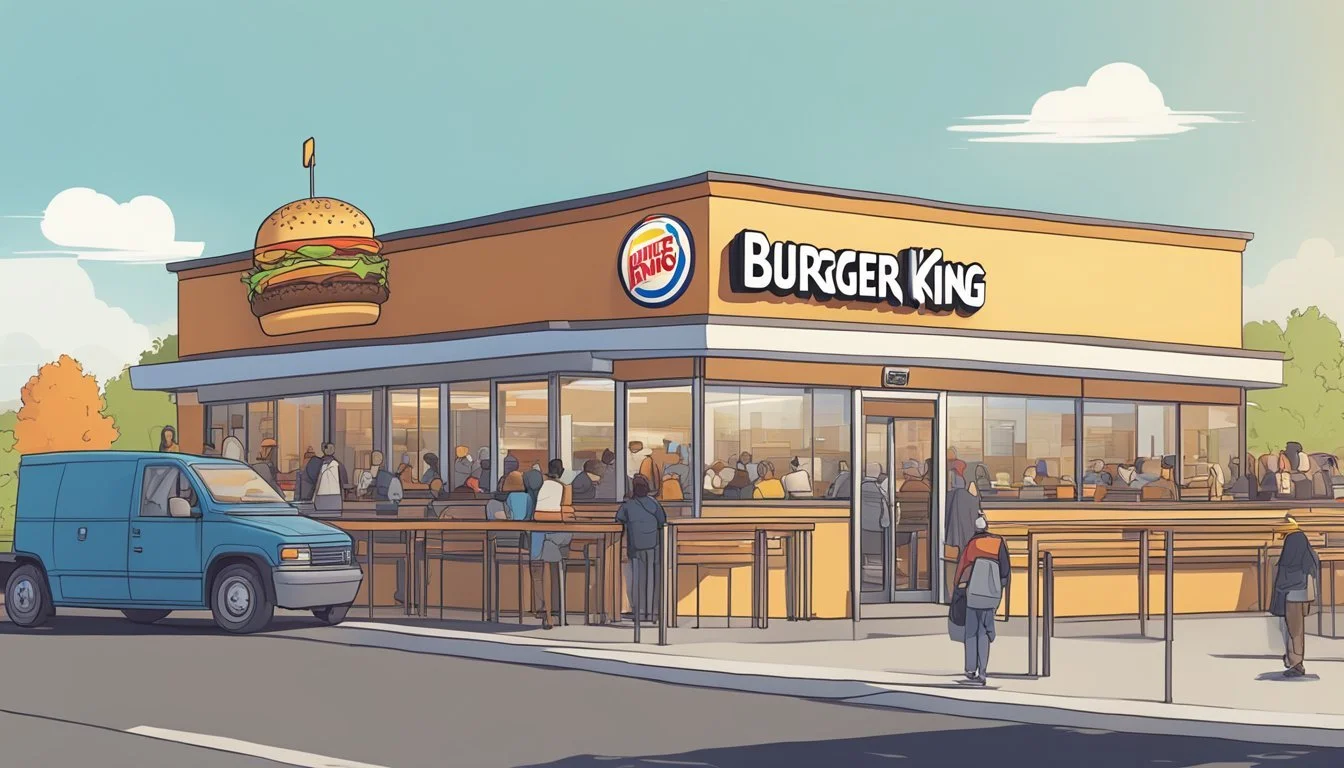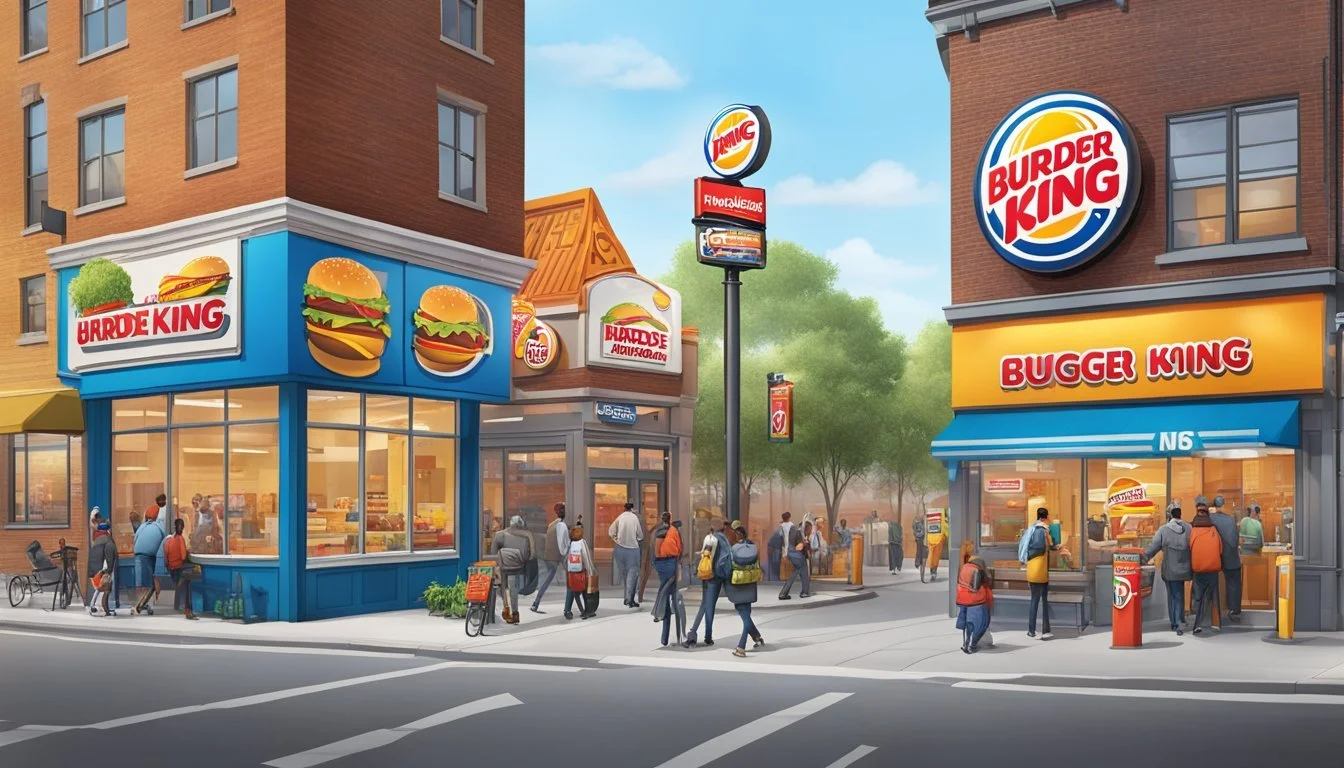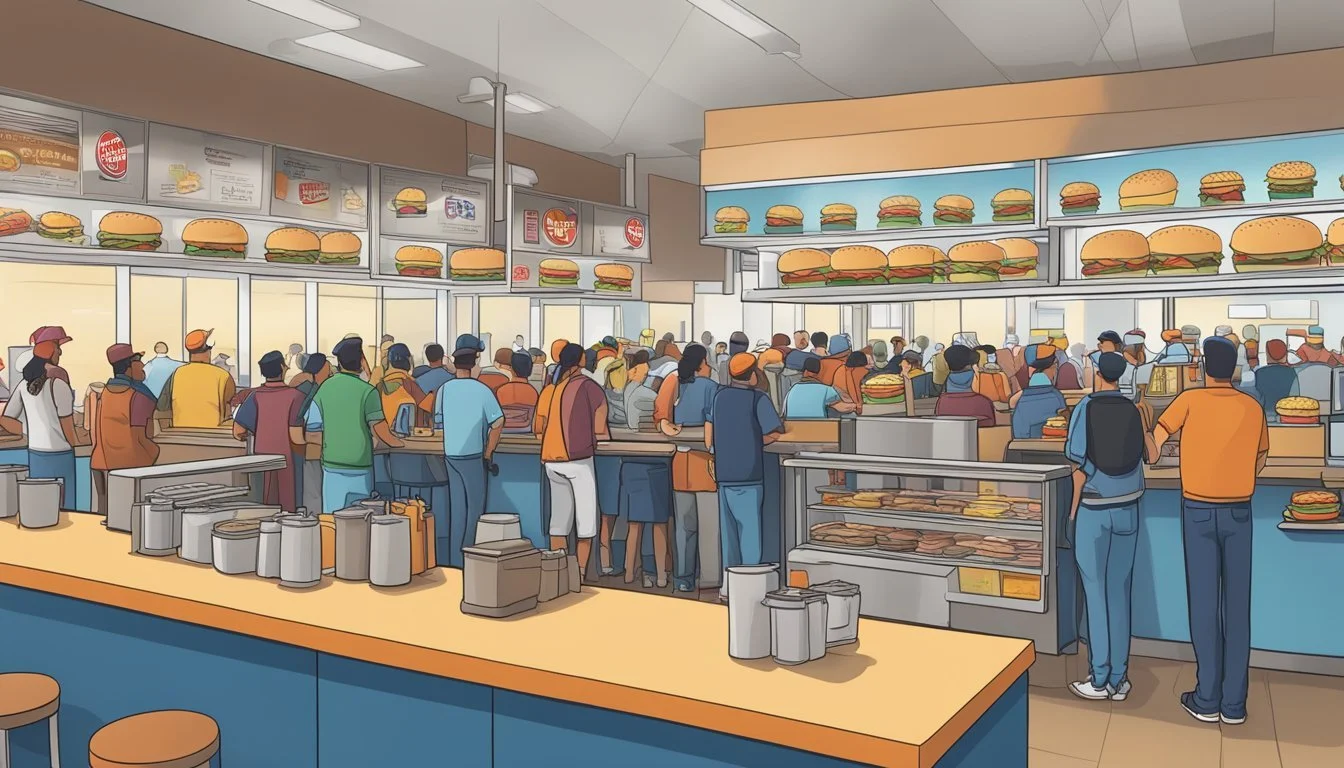Burger King vs Hardee's
Comparative Analysis of Two Fast Food Giants
In the quest for the ultimate burger, two giants stand out in the fast-food landscape: Burger King and Hardee's. Both restaurants have carved out their own niches in the burger domain, offering distinctive flavors and deals to their customers. Burger King, with its globally recognized brand, has made a name for itself with the Whopper, while Hardee's, known for its charbroiled burgers, tempts a slightly different audience with a focus on thick, meaty patties.
When comparing the two, cost and menu variety become significant factors. Hardee's positions itself with competitively lower prices, potentially providing more value for the budget-conscious consumer. Meanwhile, Burger King caters to a broader international audience, which could suggest a more diverse menu to appeal to various tastes and preferences.
Additionally, customization plays a role in customer satisfaction. Burger King offers a range of toppings and the ability to have a burger made to order, a service that's matched by Hardee's commitment to free customer-selected toppings. This level of personalization enhances the dining experience, allowing both Burger King and Hardee's to remain formidable contenders in the fast-food burger market.
Historical Overview
Exploring the roots of Burger King and Hardee's unveils a rich history within the fast food industry, with both brands having transformed significantly from their modest beginnings to become key players in the business of burgers.
Burger King's History
Establishment: Burger King was founded in 1954 by James W. McLamore and David Edgerton in Miami, Florida. Initially named "Insta-Burger King," it was built on the success of the original "Insta-Broiler" oven, suitable for quick hamburger cooking.
Growth: The company underwent significant expansion and rebranding efforts through the years. It introduced the Whopper in 1957, which became its signature product. Burger King faced a few ownership changes, with the most notable being its purchase by the Pillsbury Company in the late 1960s, which helped solidify its market presence.
Hardee's Evolution
Foundation: Hardee's was founded in 1960 by Wilber Hardee in Greenville, North Carolina. The fast food chain quickly capitalized on the increasing demand for quick-service hamburgers.
Expansion: After the opening of its first restaurant, Hardee's expansion was rapid due to its franchising model. The chain was known for its charbroiled burgers and distinctively marketed itself by emphasizing the quality and taste of its offerings. In the 1990s, Hardee's was acquired by CKE Restaurants, which also owns Carl's Jr., a move that expanded Hardee's influence in the American fast food market.
Menu Comparison
When comparing the menus of Burger King and Hardee's, customers will find distinctive signature burgers, a variety of vegetarian options, and an array of sides and desserts. Each restaurant offers unique flavors and items that cater to a wide range of tastes.
Signature Burgers
Burger King's most iconic menu item is the Whopper, a large hamburger consisting of a flame-grilled beef patty, tomatoes, lettuce, mayonnaise, ketchup, pickles, and sliced onions on a sesame seed bun. In contrast, Hardee's is known for its charbroiled burgers, particularly the Thickburger line, which emphasizes a thicker, meatier patty often paired with options like bacon, cheese, and various toppings.
Vegetarian Options
Burger King has expanded its menu to include vegetarian options such as the Impossible Whopper, made with a plant-based patty designed to mimic the flavor and texture of beef. Hardee's, while traditionally known for meat-centric menu items, offers a limited selection of vegetarian sides and has been experimenting with vegetarian burger options in select markets.
Sides and Desserts
Both chains offer a range of sides, with fries being a staple at Burger King and Hardee's alike. However, Burger King is famous for its onion rings, serving them as a crispy, battered alternative to fries. For desserts, Burger King offers items like frozen treats and pies, while Hardee's dessert menu includes hand-scooped ice cream shakes and cookies.
Taste and Quality
When comparing the taste and quality of Burger King and Hardee's, one must consider the flavor profiles of their respective burgers, the sauces that accompany them, and the overall quality of the ingredients used.
Burger Flavors and Sauces
Burger King's signature offering, the Whopper, is known for its flame-grilled flavor, a taste that is distinct in the fast-food industry. The flame-grilling method imparts a smokier, slightly charred essence to their beef patties. Their sauces, such as the classic mayonnaise, ketchup, and the specially created Stacker sauce, are tailored to complement the meat's rich flavor.
Hardee's, on the other hand, leans toward a more pronounced, meat-centric taste profile. Their burgers, frequently described as decadent and meaty, are hallmark charbroiled items which give a bold char-grilled savor. They often opt for traditional sauces, with an emphasis on highlighting the succulence of their charbroiled beef patties.
Quality of Ingredients
In terms of ingredient quality, both establishments strive to deliver high-quality products. Burger King emphasizes the freshness of their offerings, from their juicy beef patties to the crisp lettuce and ripe tomatoes that accompany them. The inclusion of American cheese adds a creamy texture and familiar taste to their burgers.
Hardee's also prioritizes the quality of their ingredients, as reflected in their charbroiled hamburgers. The quality is evident through the taste of their beef patties, which are a central feature of their menu. Their thick and tender patties, combined with fresh additions like lettuce and tomato, contribute to a satisfying burger experience.
Nutritional Value
When considering the nutritional value of burgers from Burger King and Hardee's, one must look at the caloric content and availability of healthier menu options. These aspects play crucial roles in determining which burger joint fares better in offering both indulgent and health-conscious choices.
Caloric Content Comparison
Burger King's menu features the Whopper, which contains approximately 657 calories per burger. The calorie count can vary based on the choice of toppings and condiments. In contrast, Hardee's Monster Burger packs a heftier calorie load with 1160 calories. This substantial difference indicates that for calorie-conscious individuals, Burger King might offer a somewhat lighter option in this head-to-head comparison.
Healthier Menu Options
In terms of healthier options, both chains have made efforts to provide meals that accommodate health-centric diets. Burger King has introduced items like salads and the Impossible Whopper, a plant-based alternative offering approximately 630 calories and 25 grams of protein. Hardee's counters with its Charbroiled BBQ Chicken Sandwich, with 390 calories and 33 grams of protein, showcasing a leaner protein option that caters to those looking for lower-calorie fare. Both Burger King and Hardee's thus offer selections that can be suited for a protein-rich and relatively healthier diet.
Pricing and Value
When comparing Burger King and Hardee's, consumers weigh both price and value to determine which burger establishment provides the most cost-effective solutions. A key component to this assessment is examining each chain's value menu offerings and the overall cost-effectiveness of their menus.
Cost Effectiveness
Burger King is known for positioning itself on the more affordable side among fast-food chains. Regular promotions and deals such as the "2 for $5 mix and match" offer serve as incentives for cost-conscious consumers. On the other hand, Hardee's generally leans towards slightly higher prices, which the brand justifies by touting higher quality offerings. It is observed that Hardee's products may be up to 300% pricier than Burger King's equivalent lower-cost items.
Burger King Example Prices:
Cheeseburger: $1.00
10-piece Chicken Nuggets: $1.49
Hardee's Example Prices:
Small Cheeseburger: $2.00
5-piece Hand-Breaded Chicken Tenders: $3.49
Value Menu Offerings
Both fast-food chains provide a "value menu" with a selection of items meant to be particularly wallet-friendly while still satisfying.
Burger King's Value Menu:
Offers a range of items like hamburgers, chicken nuggets, and small fries, often grouped in budget deals.
Typically includes at least one burger option under $2.
Hardee's Value Menu:
Known as the "Value Slider" menu, it includes smaller-sized burgers and sandwiches aimed at providing a filling meal without breaking the bank.
Hardee's emphasizes the use of quality ingredients in these lower-priced items.
In summary, while Hardee's stresses the quality aspect of its menu, Burger King emphasizes affordability, appealing to those seeking filling meals without spending a significant amount of money. Both chains strive to balance the equation between price and value, giving customers diverse options to satisfy their appetite and budget.
Customer Experience
In the competition between Burger King and Hardee's, customer experience plays a pivotal role. This includes how efficiently customers are served and the quality of service provided.
Service Speed
At Burger King, the speed of service is a core focus, aiming to serve customers promptly. A typical order at a Burger King drive-thru is targeted to take approximately 3 minutes from order to pickup. In contrast, Hardee's, while placing importance on speed, can experience slightly longer wait times due to their menu complexity and made-to-order options.
Burger King: Average service time of approx. 3 minutes.
Hardee's: Longer service time due to custom orders.
Customer Service Quality
The quality of customer service at Hardee's is perceived to be superior, with employees often rated higher on their attentiveness and helpfulness. Burger King, however, has implemented comprehensive training programs to ensure consistent service across its outlets.
Burger King: Consistent service due to structured training programs.
Hardee's: High ratings in employee attentiveness and helpfulness.
Brand Presence
When evaluating the brand presence of Burger King and Hardee's, it's essential to consider their global reach and local market presence.
Global Reach
Burger King boasts a significant international presence, with restaurants in over 100 countries. They have established themselves as a familiar sight in numerous cities around the world, catering to both travelers and locals with a taste for American fast food. In terms of locational diversity, Burger King’s global footprint is one of the widest in the fast-food industry.
Hardee's, while also known internationally, operates in fewer countries. They have a presence in the Middle East and have branched out with multiple locations, however, their international market penetration pales in comparison to that of Burger King.
Local Market Presence
Within the United States, Burger King and Hardee's have a strong regional presence. Burger King's visibility throughout the country is consistent, with a particular stronghold in the Midwest, where fast food is a staple of local cuisine. They maintain a robust network of locations, making them a go-to option for many Americans.
Hardee's tends to have a stronger presence in the Midwest and Southern states. They are recognized for their thick, charbroiled burgers and have developed a loyal customer base in these regions. Their strategy appears to be focused on penetrating local markets and establishing a strong foothold rather than expanding indiscriminately.
Hardee’s local market influence is reflected in their commitment to providing hearty meals that resonate with local tastes and preferences, particularly in regions where robust sandwiches are popular.
Environmental and Social Responsibility
Evaluating Burger King and Hardee's on environmental and social responsibility factors sheds light on their business practices concerning sustainability and community involvement. Both fast-food chains are becoming increasingly attentive to their social and environmental impact as public awareness and regulations tighten.
Sustainable Practices
Burger King has shown a commitment to environmental sustainability through initiatives like the introduction of the Impossible Whopper, a plant-based burger aimed at reducing greenhouse gas emissions associated with beef production. Furthermore, Burger King is working on green packaging solutions to minimize waste and encourage recyclability.
Hardee's has not been as vocal or publicized in terms of its investments in eco-friendly alternatives or sustainable supply chains. Information regarding Hardee's efforts in sustainable practices requires further transparency to evaluate its environmental impact effectively.
Community Engagement
Regarding community engagement, both Burger King and Hardee's exercise programs to contribute to their respective communities though the specifics of these programs are not detailed in the provided information. It is common for businesses of their stature to support local events, charities, and initiatives that aim to improve societal well-being. Their engagement with communities is also likely tied to customer base locality and corporate social responsibility strategies.
Details on the extensiveness of their engagement with local and global communities, however, would offer a more comprehensive understanding of their social responsibilities as major fast-food outlets.
Final Verdict
When evaluating Burger King and Hardee's in a head-to-head comparison, several factors come into play. Burger King has been known for its wide range of offerings and competitive pricing. Its signature Whopper has stood as a fast-food staple, beloved by many for its flame-grilled taste.
Hardee's, on the other hand, prides itself on quality and thicker, charbroiled burgers. Although typically priced slightly higher, customers have justified the cost with its perceived superior quality. While Burger King might appeal to those seeking more affordable options, Hardee's aligns with patrons desiring a more premium burger experience.
Burger King:
Flame-grilled burgers
More variety
Budget-friendly
Hardee's:
Charbroiled, thicker patties
Focuses on quality
Higher price point
Consumers often weigh the balance between cost and quality. Those on a tight budget may prefer Burger King's more economical options, while diners prioritizing a richer taste may gravitate towards Hardee's despite the higher prices.
In conclusion, neither Burger King nor Hardee's holds a definitive edge over the other, as preferences will largely depend on individual tastes and budget considerations. Both chains have their own loyal followings and have mastered catering to their respective demographics. The choice of which is better will ultimately rest with the consumer, guided by their particular palate and wallet.


